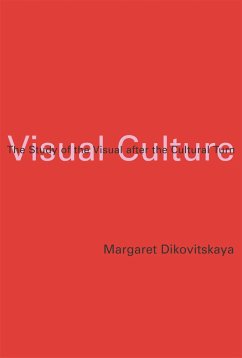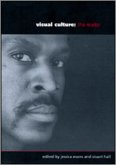The history, theoretical frameworks, methodology, and pedagogy of the new field of visual culture; current debates and the possibility for future consensus. In recent years, visual culture has emerged as a growing and important interdisciplinary field of study. Visual culture regards images as central to the representation of meaning in the world. It encompasses "high" art without an assumption of its higher status. But despite the current proliferation of studies and programs in visual culture, there seems to be no consensus within the field itself as to its scope and objectives, definitions, and methods. In Visual Culture, Margaret Dikovitskaya offers an overview of this new area of study in order to reconcile its diverse theoretical positions and understand its potential for further research. Her aim is to show how visual culture can avoid what she defines as the Scylla and Charybdis that threaten it: the lack of a specific object of study (given its departure from the traditional hierarchies of art history) and the expansion of the field to the point of incoherence as it seems to subsume everything related to the cultural and the visual. Dikovitskaya gives us an archaeology of visual culture, examining the "cultural turn" away from art history and the emergence of visual studies. Drawing on responses to questionnaires, oral histories, and interviews with the field's leading scholars, she discusses first the field's history, theoretical frameworks, and methods, and then examines four programs and courses in visual culture—those at the University of Rochester, the University of Chicago, the University of California at Irvine, and the State University of New York at Stony Brook. Bringing together considerations of theory and practice, Dikovitskaya charts the future of visual culture programs in the twenty-first century.
Hinweis: Dieser Artikel kann nur an eine deutsche Lieferadresse ausgeliefert werden.
Hinweis: Dieser Artikel kann nur an eine deutsche Lieferadresse ausgeliefert werden.








